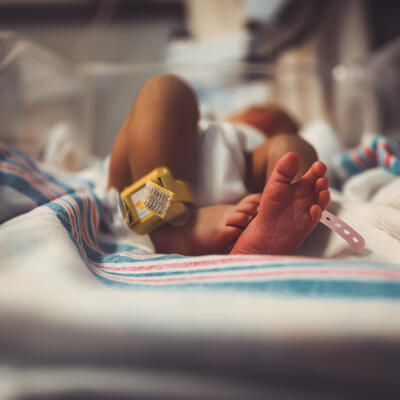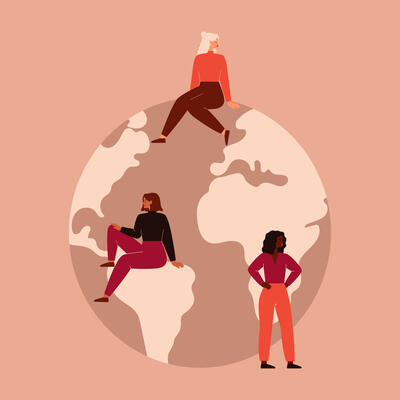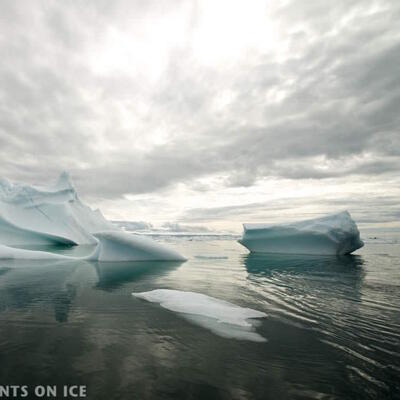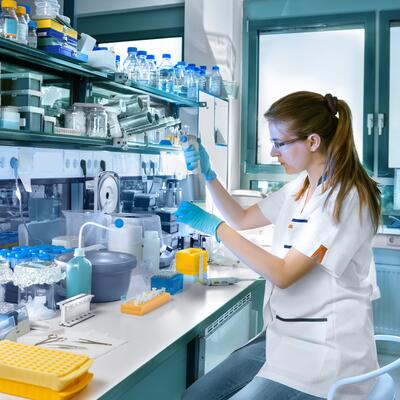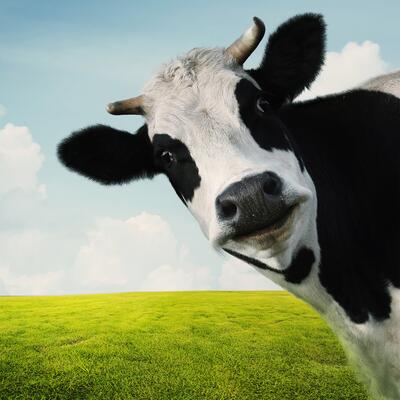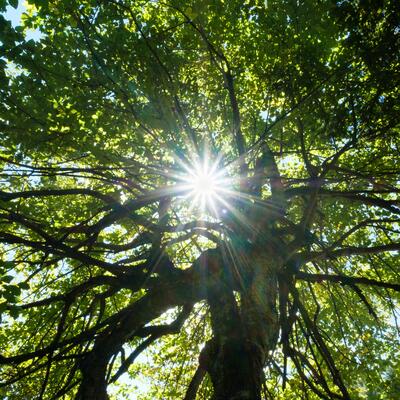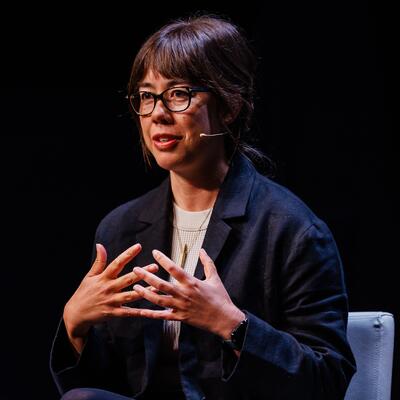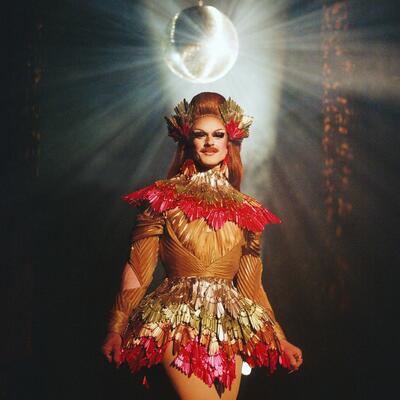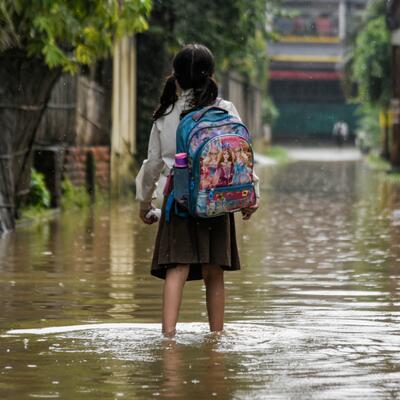
Navigating Science and Feelings on a Destabilized Planet
Guests
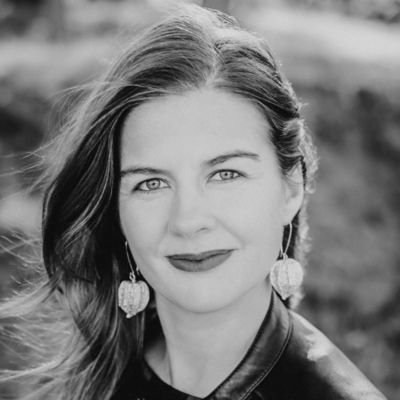
Elizabeth Rush
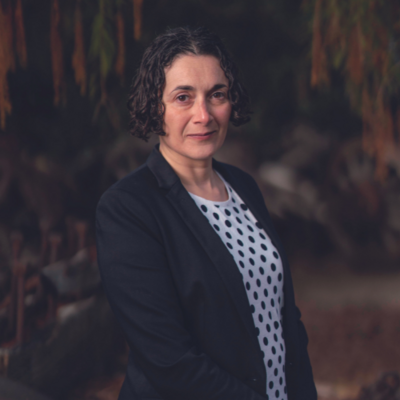
Joëlle Gergis
Summary
This year is shaping up to be the hottest year in 125,000 years. It may also be the coolest year a child born today will ever see. The climate crisis is playing out differently across the globe, but regardless of where you live, you are likely feeling its impacts.
Australian climate scientist Joëlle Gergis served as a lead author of the Intergovernmental Panel on Climate Change’s Sixth Assessment Report, which itemizes in great detail the state of the climate. She says working with peers across the world gave her a greater, and scarier, understanding of our current moment.
“I think many of us as research scientists, we understand the conditions that our own region is experiencing, but when you actually stop to piece it all together to get a global perspective, that's when I think for me, something really clicked and I realized that things are actually a lot worse than the average person realizes.”
It can be hard to carry that knowledge. And scientists are generally expected to be rational and not bring their feelings into their work, even as they struggle to process their own feelings about the world we’re headed into. Gergis says it doesn’t have to be one or the other, though.
“I really feel that it is possible to be rational and objective and professional, but still be a human being and say, okay, well this is the state of the climate crisis that we're facing right now. I do feel feelings of grief and anger and frustration around that.”
Gergis says we need to trust climate scientists – the experts who have devoted their life’s work to this crisis – and get more people of all stripes to engage with action and solutions, recognizing that the people and places they love are under threat.
“I don't think people can make an emotional connection with renewable energy targets, to be honest. But they can make a connection with, say, a beautiful, local beach that they visit or a forest that they love, or a particularly important hiking trail or whatever it is for that particular region or that particular person.” And Gergis says she finds hope in knowing that we have collective power to make big, meaningful changes.
“Remember that our politicians are responding to us as voters, and companies are responding to us as consumers. So we actually have enormous power, political power, and consumer power to provide or remove the social license for the continued exploitation of our planet.”
For many young people, worries about the climate crises have centered around the question of whether or not to conceive children. It’s a complicated and personal issue – not unique to this generation perhaps, but challenging all the same.
“You worry that your child will have an impact on the planet, but you also worry about the planet's impact on your child,” says science writer Elizabeth Rush.
In “The Quickening: Creation and Community at the Ends of the Earth,” she documents her journey to Antactica’s Thwaites Glacier, known as the “Doomsday Glacier” as she contemplates what it would mean for her to have a child at this time of radical planetary change.
“[Thwaites Glacier] is considered sort of ground zero for the potential for catastrophic sea level rise this century. Thwaites alone contains two feet of potential sea level rise, and it acts as a kind of cork to the West Antarctic ice sheet, which if we lose that, could raise global sea levels 10 feet or more,” Rush says.
Rush says even as she learned more about the critical and threatened climate-stabilizing presence of Antarctica, she sees a hopeful path forward. It depends on humans remembering that we’re a part of nature, not separate from the natural world that supports and nurtures us.
“Climate change is teaching us the fallacy of that kind of thinking, and I hope that it is re-enlivening our attention to the more than human world…. I don't know how the story ends, but I do think that I see reason for hope despite the dire circumstances, and I think it has to do with kind of mending that relationship as best we can.”
Episode Highlights
5:00 Elizabeth Rush on being a woman on a ship exploring Antarctica
11:00 Navigating the decision whether or not to have a child
18:30 Calving at Thwaites Glacier
24:00 Antarctica's role in climate stability
33:00 Joëlle Gergis on why she became a climate scientist
35:00 Working on the IPCC Sixth Assessment Report
43:00 Bleaching on the Great Barrier Reef
50:00 The possible consequences of ignoring the IPCC’s recommendations
56:00 COP28 being held in United Arab Emirates
Resources From This Episode (2)
Full Transcript
Note: Transcripts are generated using a combination of automated software and human transcribers and may contain errors. Please check the actual audio before quoting it.
Greg Dalton: This is Climate One, I’m Greg Dalton.
Ariana Brocious: And I’m Ariana Brocious.
Greg Dalton: This year is shaping up to be the hottest year in 125,000 years. It may also be the coolest year a child born today will ever see. It’s hard to get my head around that.
Ariana Brocious: It’s hard to hear it. It sounds scary. Not something I really want to think about.
Greg Dalton: The climate crisis is playing out differently across the globe, but regardless of where you live, you are likely feeling its impacts, big and small.
Ariana Brocious: And it’s hard to go even a day without seeing something in the news related to the climate crisis: the recent fires in Hawaii, which were super destructive and very scary. And then the good news out of Montana, where youth were successful in their case against the state for not considering climate impacts. There’s a lot to deal with right now.
Greg Dalton: It’s quite an emotional roller coaster. Australian climate scientist Joëlle Gergis served as a lead author of the Intergovernmental Panel on Climate Change’s Sixth Assessment Report, which itemizes in great detail the state of the climate.
Joëlle Gergis: And I think many of us as research scientists, we understand the conditions that our own region is experiencing, but when you actually stop to piece it all together to get a global perspective, that's when I think for me, something really clicked,and I realized that things are actually a lot worse than the average person realizes.
Ariana Brocious: It can be hard to carry that understanding of the data. And scientists are generally expected to be rational and not bring their feelings into their work, and that’s also hard.
Greg Dalton: Still, scientists and others also struggle to process their own feelings about the world we’re entering now.
Joëlle Gergis: But I really feel that it is possible to be rational and objective and professional, but still be a human being and say, okay, well this is the state of the climate crisis that we're facing right now. And I do feel feelings of grief and anger and frustration around that.
Ariana Brocious: And it’s not just scientists, obviously. For many people of my generation and younger, worries about the climate crises have centered around the question of whether or not to conceive children. It’s a complicated and deeply personal issue – not unique to this generation perhaps, but challenging all the same.
Elizabeth Rush: You worry that your child will have an impact on the planet, but you also worry about the planet's impact on your child.
Greg Dalton: That’s a lot to consider. In “The Quickening: Creation and Community at the Ends of the Earth,” science writer Elizabeth Rush documents her journey to Antactica’s “Doomsday Glacier” as she contemplates what it would mean for her to have a child at this time of radical planetary change.
Ariana Brocious: This journey was unusual. Rush learned she had an opportunity to join a research vessel named the Palmer where she would be traveling with dozens of strangers to one of the most isolated parts of the world for a couple months.
Elizabeth Rush: To be perfectly honest, I don't think I understood the true circumstances that I would be in when the opportunity came up. I had been writing about sea level rise for about a decade at that point, and the more I learned about Thwaites Glacier in Antarctica, the more profoundly I wanted to go there. It's considered sort of ground zero for the potential for catastrophic sea level rise this century. Thwaites alone contains two feet of potential sea level rise, and it acts as a kind of cork to the West Antarctic ice sheet, which if we lose that, could raise global sea levels 10 feet or more. Something I didn't understand even after covering climate for many, many years, was that a lot of IPCC climate models around sea level rise, for the longest time, didn't take West Antarctica into account. Because we have next to no observational data from there. In the 2000s and 2010s, when we're thinking about, you know, oh, is it three feet of sea level rise, or four or five feet of sea level rise by the end of the century, a lot of those models don't take Thwaites into account, they don't take West Antarctica into account. And so, this glacier is really deeply important for its potentiality to fundamentally kind of shift the scale and the rate at which we understand that sea level could rise, but no one before our mission and the history of the planet had been to the place where the glacier discharges ice into the sea.
Ariana Brocious: You told friends you were joining this expedition and one of them suggested that you take self-defense classes. Another sent you an article about a professor who had taunted and degraded his female PhD student while at sea. Give us a sense of what it felt like to be a woman aboard this ship and the dynamics that played out in that way.
Elizabeth Rush: Well, I think in order to give you kind of a sense of what it felt like to be on this boat, I think I need to talk about how exceptional it is that women are working in Antarctica, in and around Antarctica. Something that I didn't understand until I started to learn more about Antarctica was that the first human being to see Antarctica saw. This continent in 1820, we think it was a seal hunter named Nathaniel Palmer. And, he was there, you know, looking for oil in the form of seal blubber. And I suddenly realized that all of the firsthand accounts we have of it, all of the true stories that are linked to humans there have been written or told in the last 200 years, and the overwhelming majority of them are tied up in stories of imperial conquest and extraction. And they're overwhelmingly penned by white men from the global north. It's really not until like 30 years ago that you start to see an uptick of women making their way to the ice and gender non-binary people. And so to this day, a lot of the culture in and around Antarctica still has a lot of this sort of like masculine bravado and daring do. And the National Science Foundation just released a report, I believe last year that I think it's like 79% of women and gender non-binary people report facing sexual harassment on the ice. So, my guard was up, is how I would describe it when I stepped on board that icebreaker. We had near gender parity amongst the scientists, but if you include all of the people on the boat, it was more like a third of the people aboard were women. And I was actually really thrilled by that number. It was a lot higher than it is in most missions. I wrote a note in my journal, you know, be guarded. I tend to be a pretty open, enthusiastic person. But I walked into the mission very aware of this kind of history of gendered exclusion on the ice, and I just wanted to do what I could to take care of myself.
Ariana Brocious: Did you end up taking a self-defense class?
Elizabeth Rush: I did not end up taking a self-defense class. I have done a lot of field work in remote sites before and I have faced sexual harassment in other situations. And so at some level, this also didn't feel new to me. It feels like something that in many ways has defined my professional life, throughout my entire career, and it's just something that we don't talk that much about.
Ariana Brocious: Yeah, which is really gutting to hear, and I know you're not alone in that. A lot of women face discrimination, harassment and a lot of things in the sciences in particular. Before you set out on this federally funded research trip, you had to fill out 40 pages of paperwork. And you say that on page eight, there was one thin line that read pelvic exam. You learned pregnant women, pregnant people are not allowed on these trips. So what was your reaction when you learned that?
Elizabeth Rush: Well, when I was invited on this trip, I was right at a moment in my life when I had decided that I really wanted to become a parent. And it was the first time in my adult life where I had, you know, a stable, loving relationship and a paycheck. And I had been working towards that sense of stability for a long time. So at a personal level, my heart sunk a little bit. It was like, you know, I got invited on this mission fully eight or nine months before we embarked. So choosing to be a part of it meant putting off, trying for basically a full year. I was at the time, 35, and you know, that number is bandied about as a threshold after which your fertility can start to drop. I've since learned that it's probably a couple years later than that, but for me it felt like, okay, you know, if I choose to go on this mission, am I really undermining my chances of getting pregnant? And I would be lying if I said I didn't feel frustrated to the point of anger at some of those rules. I also, you know, tried to reason with myself and was like, well, you probably don't wanna have morning sickness and throw up on a glacier. That's probably not pleasant. But also like, why is it that we can't support pregnant people on the ice? We can support all of these other extravagant undertakings. So it felt like a continuation of that historic gendered exclusion.
Ariana Brocious: And I wanna talk about that conundrum that you found yourself in, of deciding that you were going to have children and that had actually been something that took you a while to settle on. So can you tell us a bit about the thought process that you had prior to deciding that, you know, you did wanna have kids and how climate was a part of that decision?
Elizabeth Rush: Yeah, I mean, I've been writing about climate change and when I say writing about it, you know, I've spent most of my energies up until this mission interviewing members of frontline communities about the ways in which climate change and sort of structural violence overlap in their lives and the things they've decided to do about that overlap. And that's meant, you know, talking to a lot of flood survivors and folks who've lost people in floods, folks who've lost homes. So for me, climate change has never really been or hasn't been for a long time something that's going to happen in the future. I've known it to be something happening now and accelerating and worsening now. I wanted to have a child. And I also felt tremendously guilty for a long time about that desire because, you know, as a white woman from the global North, you hear about it and you're like, oh, well am I just gonna, you know, contribute to fossil fuel extraction by having another kid, by putting another human being on this planet who lives in a deeply consumer society. But I carried the desire to have a child onto the boat, and I also carried an openness to having that desire change because of the mission. It was sort of like, I don't have a kid yet. I haven't fully committed yet. What do I need to think through even more fully to understand, you know, if and whether I can commit to having a kid. And so the mission became kind of like an opportunity or a stage to continue thinking about child rearing on a changing planet.
Ariana Brocious: Well, let's do that a little. So simply by existing and being a resident of the global north, as you said, we all have a climate impact, and that happens upon giving birth to a new child. They will definitely have an impact. That's just a fact. How big is negotiable depending on, on, on climate lifestyle. But still those of us that live in this part of the world do have bigger climate impacts than others. And you point out an estimate that 422,000 gallons of diesel was burned by the Palmer, just getting to the glacier and back, and that that alone will melt 13 square kilometers of the ice that the team is there to study. So there are impacts even to learning more and trying to better understand the position that we're in. So how do you think about the impact of your choices?
Elizabeth Rush: It's a great question and it definitely makes me think about a really specific piece of information that I encountered a couple years ago. In particular, I came across it in a really fabulous essay by Mian Christ called, is it Still Okay to Have a Child? And she writes about how this thing that we call like carbon footprint. The carbon footprint and carbon footprint calculators was really popularized by British Petroleum in 2005. They invested hundreds of millions of dollars in a multivalent ad campaign across the United States on television, on bus stops and newspapers. And these ads were really simple. They said, you know, what is a carbon footprint? Everybody has one. Go to our website to figure out what yours is. And, you know, they're so ubiquitous today. We all know what carbon footprint calculators are and we think in carbon footprint calculus, You know, how much CO2 can I keep in the ground by becoming a vegan? How much CO2 can I keep in the ground by getting an electric car? All of this, this logic, this rhetoric around calculating your personal impact on the planet is really a smart and devastating tactic by the fossil fuel industry to blame shift onto individuals and to say it's you through your individual consumption, consumptive actions that are making this problem, you're making it worse. And the best way that you can combat it is to shift those individual actions and increasingly we see children, offspring in these carbon footprint calculators and you know, the number that's often bandied about is that if you have one less child, you'll keep 60 tons of CO2 sequestered in the ground. Not only do I have a problem with the fossil fuel industry impacting my decisions around reproduction. I also have a problem with just the comparison that buying a Chevy Bolt or a Jetta is somehow equivalent to, or the same kind of decision as choosing to have a kid or not. I think there's a really fundamental categorical error there. And something that you never see in these calculators is the idea that collective action can keep CO2 in the ground. Right? So this really amazing activist, Blythe Papino would say to me, you know, it's never in those calculators, the fact that if you got together with, a dozen people and you shut down a small coal fired power plant for a single day, you'd also keep 60 tons of CO2 in the ground. So I feel like as I encountered that information, most of the guilt, if not all of the guilt I felt around simply wanting to have a child went away, and was pretty immediately transformed into a kind of rage at the time and energy I had lost feeling that way. And rage that other young people also are, you know, caught in this quagmire that is being constructed so that these corporate entities can continue to extract at really high rates without being held accountable for that. And the last thing I wanna say is also, you know, when you say 60 tons of CO2 is gonna be the amount of CO2 that your offspring pump into the atmosphere, that assumes a world in which our present day fossil fuel dependency continues. And I know so many people who are actively fighting for a world that doesn't look like that. And so it really assumes a continuation of a world order that we know we are actively, so many people are trying to move away from.
Greg Dalton: You’re listening to a Climate One conversation about navigating science and feelings around climate. If you missed a previous episode, or want to hear more of Climate One’s empowering conversations, subscribe to our podcast wherever you get your pods.
Coming up, the power of birth stories.
Elizabeth Rush: Everyone has come here through the generous gift of someone else's body. And I think that's something that's really important to talk about like deep interconnection, not just amongst human beings, but also ecosystems and a planetary web of life that includes ice and rock and ocean as actors. So I think talking about birth in this kind of universal way has that power.
Greg Dalton: That’s up next, when Climate One continues.
Ariana Brocious: This is Climate One. Let’s get back to my conversation with Elizabeth Rush, author of “The Quickening: Creation and Community at the Ends of the Earth.” She takes us to one particular morning aboard the ship Palmer.
Elizabeth Rush: I remember waking up and going up to the bridge. And being like, wow, it's so beautiful and there's so many icebergs everywhere. And I took all these photos and I was just like, what a gorgeous day. It had been so gray and so overcast and this felt just really different. I went downstairs, I did some interviews, I did some transcription, and after lunch the chief scientist is in the lab and he's compulsively clicking back between back and forth between two satellite images of our work area, which is about 15 miles wide, and I don't know, like 15 miles deep, more or less, maybe it's like 30 miles deep. Because we had ocean and ice shelf. And in the first image, Thwaites Glacier, the ice shelf of Thwaites Glacier is like this solid whole thing. And in the second image, it looks like someone took a hammer to a windshield and like broke it up into 200 pieces. It turns out those icebergs that I saw that morning had all been part of the ice shelf the day before, and there had been this massive collapse and breakout where a huge chunk, like 15 miles wide, 15 miles deep of the glacier, literally just kind of like exploded or fractured overnight. It's such a violent, gigantic change. I was there and at some level I didn't notice it happening. I didn't hear anything. I just thought like, well that looks really pretty. And so, you know, this is a chunk of Thwaites bigger than the city where I live falling apart right in front of me. It's such a dramatic change and it's so perilous for our ship. Like ships wanna avoid ice break icebergs at all costs that we flee that part of the Amundsen Sea after that event. So it's like two days later. And then I see a much smaller scale calving event where the front of the glacier, really kind of like turns to cottage cheese and crumbles into the water. Some huge chunks of ice fall off. And they're so big that, you know, they cause like a 10 foot wave of water to like rise up out of the ocean in front of them that starts traveling towards us. I'm on the main ship, but we have a couple scientists out in the bay at that moment on a zodiac, you know, hunting for Waddell seals. They have to flee to the nearest patch of open water. Like it's, it's a very accelerated moment of change and it's really dramatic. And in comparison to the collapse that we had been witness to three days ago or two days prior, it's like a tiny blip. It's like a tiny dust mote of change compared to what was actually happening on the day that we had to flee the test site. And so I feel like sometimes climate change is like that. It's like sometimes it's such a large shift that it's really hard to hold onto or see it. But you can sometimes find something that somehow is changing on a human scale that we can see and it's evidence of these larger shifts. And somehow the little thing is more dramatic or more perceptible, which is both funny and terrifying to me.
Ariana Brocious: So how do you connect watching this glacier collapse before your eyes with all these memories and interviews you'd done with flood victims on the coast?
Elizabeth Rush: I feel like something that flood victims are really good at is living with tremendous uncertainty, like a lot of areas that flood once flood multiple times. And there's a little bit of a sense of you never know when the next flood is gonna come. How are you gonna prepare? What, like, you know what you can do after you live through one? You can lift up your furniture, you can put sandbags around your house. I felt like through their stories, I learned to live with a kind of persistent uncertainty, but watching the scale of the collapse of Thwaites happen, where I couldn't even see it, it felt like the level of uncertainty that I had grown accustomed to and felt kind of safe or familiar with was like the wrong scale of uncertainty that I had, like missed it by a factor of three or something like that. So in that sense it was incredibly humbling.
Ariana Brocious: Yeah. So the book has a huge cast of characters, but you say the Thwaites Glacier is the biggest, most important character. How so?
Elizabeth Rush: I mean, I just wanna acknowledge that like we're all on this boat 'cause we have, each person in their own way has been drawn towards Thwaites and I was really interested in thinking about not just that human beings are having an impact on Antarctica, but that Antarctica impacts us. Right. And I wanted to kind of reverse the sense of agency there. Because Antarctica's almost always like a backdrop. It's almost always like a place to be conquered and I remember asking the chief scientist on board. I was like, do you think Antarctica shapes us? And I thought he was kind of going to dismiss this question as humanistic sorcery. And he thought about it for a second and he was like, well, yes, of course. The tremendous stability of Antarctica's glaciers throughout the later Holocene, like the last 6,000 years, really gives rise to human civilization as we know it. If you look outside of the last 6,000 years of planetary history, sea levels rise roughly like they rise three feet a century all the time. And right now, like three feet a century, we are having such a hard time dealing with that. We're having a hard time adapting our coastal cities at a rate, to a rate of change that's pretty common outside of the last 6,000 years. He said, you know, the fact that these glaciers held still for so long allowed us to build along the coast in the way that we have and have these international or deeply connected human societies, and I thought that was really interesting. So when I say Thwaites is like the most important actor in this play, I'm trying to tease out some of that acknowledgement that even though Antarctica is at the bottom of the planet, it shapes us just as much as we shape it.
Ariana Brocious: The narrative in your book about your journey to Thwaites Glacier, is interspersed with the crew's birth stories. What do you think is powerful about that story? The birth story of someone.
Elizabeth Rush: Everyone has come here through the generous gift of someone else's body, you know, to make a home inside someone else's body for nine months. You understand that no human being is ever alone or singular when you understand that that is where we all begin. And I think that's something that's really important in this book is to really in subtle ways talk about like deep interconnection, not just amongst human beings, but also kind of ecosystems and a kind of planetary web of life that when I say that, you know, includes ice and rock and ocean as actors. So I think talking about birth in this kind of universal way has that power. I also think birth stories in general are really interesting, fascinating, full of like rich, unexpected details. And I for one was, you know, at least 25 before I heard my first birth story. And I remember reading it, it was a dear friend who shared with me, you know, the seven pages she had written after giving birth to her son, and I was shocked. I was just like, oh my God, I had no idea that labor was anything like that. And so it also feels like, you know, a really interesting sort of taboo that this is something that everybody at some level has access to experiences knows about, and we don't ever talk about it.
Ariana Brocious: Yeah, there is sort of a taboo. I mean, you mostly just hear, “Baby and mom are doing great.” We've talked with other people who have debated whether or not to have children in the climate crisis, and some of it, as you've already talked about, is tied to feelings of guilt and privilege and worrying about one person's impact. But some of it is about the world that the kid will grow up in and the already worsening situations on so many fronts, you know, more severe weather storms, environmental degradation, ecosystem collapse, those types of things. And as a mother myself, I feel like there's a point of almost having to do a kind of cognitive dissonance, of like knowing that's there and also choosing to make the decisions you do. And I'm wondering if that is how it is for you or how you, how you evaluate sort of the ongoing risks that might present themselves to your kid and, and how you think about it?
Elizabeth Rush: That's a great question and I feel like it's exactly sort of like, yes, you worry that your child will have an impact on the planet, but you also worry about the planet's impact on your child. And I very recently thought to myself, It's going to be worse in my son's lifetime than what I reckoned, you know, as I was choosing to, to bring him into the world. And I think that feels very familiar in almost any aspect of climate change. It's like, we think it's going to do X and then we find out that that thing is happening faster than we imagined a couple years ago or a couple decades ago. So, I think I wanna acknowledge that that is a scary feeling. And I'm not sure if it makes me think, oh, did I miscalculate like I did, I think I did miscalculate. And at the same time you have, I have committed, I have this child here. It makes me all the more aware that what we do In the next 15 years plays a really significant role in shaping the tone and timber of that future planet that they're gonna live in. And so it's made me feel and act with more urgency than I had even a couple years ago. But I think it is true that there is at some level a feeling of incredible cognitive dissonance that you know, I feel like I see all of these future threats and their present threats and at the same time, one of my tasks as a mother is to like teach this child to fall in love with the world. 'cause he can't fight for it if he doesn't love it first.
Ariana Brocious: Yeah. So as we wrap up here, you witnessed what's known as the Doomsday Glacier, Thwaites Glacier, falling apart, as we've discussed literally in front of you even. So you have a hopeful disposition. So how do you think about the future now, having come back from this trip, having had a child? What's your outlook?
Elizabeth Rush: I feel like, in the US over the last, let's say let's say over the past couple centuries, it's like we lost the thread of the larger story that we live inside of that we are completely dependent upon freshwater and the unfurling of seeds into plants and all manner of animal energy and, that human beings in nature are not at all separate from one another. Humans are, you know, a de facto part of nature. We are animals and I feel like we've told a story for centuries that says that we're separate or different than the world that really supports and nurtures us. I think climate change is teaching us the fallacy of that kind of thinking, and I hope that it is re-enlivening our attention to the more than human world because in part of the violence with which it's unfolding in the present moment. I don't know how the story ends, but I do think that I see reason for hope despite the dire circumstances, and I think it has to do with kind of mending that relationship as best we can.
Ariana Brocious: Elizabeth Rush is author of the Quickening:Creation and Community at the Ends of the Earth. Elizabeth, thank you so much for joining us and sharing your stories here on Climate One.
Elizabeth Rush: Thanks so much for having me. It's been a pleasure.
Greg Dalton: Much of the data we rely on to characterize the scale and scope of the climate crisis comes from one essential and comprehensive source: The United Nations Intergovernmental Panel on Climate Change, or IPCC.
Ariana Brocious: Scientists from all parts of the globe come together to review the latest data, publishing regular reports that summarize the findings about the climate emergency. Joëlle Gergis is a climate scientist at Australia National University and served as a lead author of the IPCC’s Sixth Assessment Report. In her book “Humanity’s Moment: A Climate Scientist’s Case for Hope,” she wrestles with her own questions around finding the hope to restore our relationships with ourselves, each other and the environment.
Greg Dalton: When she was in high school in 1994, wildfires engulfed Sydney, not far from her home. Witnessing those fires helped set her on the path to becoming a climate scientist.
Joëlle Gergis: I guess as a 16 year old, it was a pretty terrifying experience to see, you know, ash falling from the sky and just littering the neighborhood, and it was one of those things that I realized that extreme weather is something that has really shaped a country like Australia. And as a young person, I was really wanting to understand, what actually causes these ferocious weather conditions? And I guess that led me on a journey, a long journey, which I'm still on, which is trying to understand how the climate is changing and what are the causes of the changes.
Greg Dalton: Right. And such effects of climate disruption are becoming increasingly apparent to more and more people around the world. We saw that this summer. Does that give you any hope that it'll create enough awareness and action to respond to what we're seeing and experiencing and the science?
Joëlle Gergis: Well, I think a lot of scientists often wonder whether this is going to be the year when people finally wake up and they finally get it. But I'm not hopeful that that is gonna be the case, although I do think that 2023, as we can already see, is bringing a lot of extreme weather and climate conditions to effectively every corner of the globe. And so I think it is gonna be a very interesting year in terms of how things play out with the El Nino that's intensifying in the Pacific Ocean at present. And given that we have now warmed the climate, 1.2 degrees above pre-industrial conditions, an ll of natural variability is playing out on the background of this warmer world. And so we can expect unprecedented conditions as the southern hemisphere, summer starts to, to warm up. And, and so we've been looking to the Northern Hemisphere, and to be honest, I dread actually what's gonna be playing out, in our part of the world, given just the extremes that we've experienced in recent years have been, I mean, for me has really been a main motivator for setting aside some of my own research objectives in the science that I work on to actually try and communicate with the public.
Greg Dalton: And one of the big reports that goes to the public is the UN InterGovernmental Panel on Climate Change sixth assessment report that's for policymakers and gets lots of mainstream news coverage. How did that role affect your emotional attachment to your work and what you're navigating and experiencing?
Joëlle Gergis: I think it's fair to say that working on the IPCC was a life-changing experience for someone like me. I mean, if you can imagine sitting around a table with people from all parts of the world. So in my chapter team, I was working on the water cycle chapter and we had people from Pakistan and China and France and New Zealand, and you name it. But I guess for me, being someone that was trying to help with the global Climate Change assessment report. It's effectively like having a giant jigsaw puzzle and you're trying to piece all these different pieces together to get a sense of what's happening globally. And I think many of us as research scientists, we understand the conditions that our own region is experiencing, but when you actually stop to piece it all together to get a global perspective, that's when I think for me, something really clicked and I realized that things are actually a lot worse than the average person realizes. And I really wanted to do my best to, to clearly communicate it out to people so they really understand what's at stake, because we are actually in what a lot of the scientists refer to as this critical decade. So the 2020s are gonna be this period that we look back on and say, well, where did you, where were you and how did you show up in this moment?
Greg Dalton: Right. Though old timers like me can recall that we've been saying and hearing critical decade for several decades. That even goes back into the, to the eighties. The IPCC assessment reports come out every six years and they're a synthesis of science. They don't create new science, they’re kind of the state of known science. And yet I wonder, you know, in the United States we have a real, certainly Covid showed, skepticism of science. Some people are just rejecting science. So how important it is, is it to have more of these reports when it's happening all around us do we really need science? Is science leading the conversation?
Joëlle Gergis: Look, I think personally I feel like we would be flying blind without science navigating us through these very complex times. And I think it's, it's sort of like saying, well, if you had a medical condition, you know, it doesn't, doesn't really matter if you go and see a specialist about a particular aggressive cancer or whatever other complex condition you might have, I think that that is an insidious trend that is starting to, to really contaminate public debate. And as a scientist, I find it very alarming because it is one of these things where, when you are actually a part of the process that develops information and evidence in terms of our scientific research, you can see how difficult it is. It's a very rigorous process and it goes through various rounds of peer review, and it's not just someone with an opinion. We aren't just people with an opinion here. This is something that is based on effectively the entire body of work from thousands and thousands of scientists. So I think people don't really appreciate just how much goes into every single line of an IPCC report. It is a grueling process and it is poured over by literally hundreds of people. So I think that's what makes it a particularly powerful report.
Greg Dalton: This is Climate One. Coming up, finding our own power to create change:
Joëlle Gergis: Our politicians are responding to us as voters, and companies are responding to us as consumers. So we actually have enormous power, political power, and consumer power to provide or remove the social license for the continued exploitation of our planet. (:14)
Greg Dalton: That’s up next, when Climate One continues.
Greg Dalton: This is Climate One. I’m Greg Dalton. In 2019, Joëlle Gergis was returning from an intense five-day meeting with other IPCC scientists. Feeling overwhelmed, she wrote the following in her journal.
Joëlle Gergis: It's extraordinary to realize that we are witnessing the great unraveling, the beginning of the end of things. I honestly never thought I'd live to see the start of what sometimes feels like the apocalypse. The earth is struggling to maintain its equilibrium. It's possible that we are now seeing a cascade of tipping points lurching into action as the momentum of instability takes hold and things start to come apart. I honestly don’t know what the future will bring.
Greg Dalton: Wow, that gives me chills to hear that. What's it like for you to reread those words today?
Joëlle Gergis: Well, to be honest, it takes me back to basically sitting on a long haul flight and I'd just boarded and was, I was so overwhelmed with, with what had just occurred in the IPCC meeting and, and basically I just took my journal out and just started writing everything that was in my mind and I was crying and I was feeling really, really overwhelmed. So it was a difficult decision to choose to share such personal information. But I realized that the missing link in some of this is that people aren't making an emotional connection with what is actually unfolding right now. And sometimes when we talk about climate change, people think, oh, well, it's just about numbers on a graph. Well, that's actually not right. It's about the people and the places we love and the threats to those conditions that have had humanity in a really sort of stable place for, for a very, very long time. So for me, I've been trying to, I guess the way I phrase it in the book is connect the head with the heart. So it isn't just enough to understand the facts and figures of climate science because to be honest, I mean, I'm not even sure that that's important anymore because I, sometimes, I think again about a medical analogy. If you were diagnosed with a cardiac condition. Do you need to go and study cardiology and, and really be across every single thing to do with the medical science? I actually don't think so. We have to trust our experts who've devoted their life's work to this. And I think a similar thing applies with climate science. We do need to know the basics, and we do need to understand particularly what's at stake. But I think it's important to say we don't all have to be scientists. In fact, we don't need more scientists right now. We actually need the rest of the community engaging in this. Whether it's people from the social sciences, the general public, you name it, we need it right now. And I don't think people can make an emotional connection with renewable energy targets, to be honest. But they can make a connection with say, a beautiful, a local beach that they visit or a forest that they love, or a particularly important hiking trail or whatever it is for that particular region or that particular person, or just for a lot of people who have children, is realizing that the little people in their life will not experience the world as they did and that we are in fact this last generation of people to see the world as it is today. And I think most people still haven't quite come to terms with what that actually means because it's actually a pretty profound thing to consider.
Greg Dalton: Right. We're attached to the world as we've known it, as it has been, and it's kind of discontinuity with what's been and what is and what will be, and that's hard for our perception perhaps lags there. You write that “as scientists we're often quick to reach for more facts than grapple with the complexity of our emotions.” And you quote Rachel Carson, ecologist and author of Silent Spring first published in 1962 who wrote, “it's not half so important to know as to feel.” Scientists are expected to be rational and not bring their feelings into their work. So how do you navigate that?
Joëlle Gergis: I think that's something that I have been spending a lot of time thinking about in recent years, particularly since my engagement with IPCC work. But the reality is that we compartmentalize our emotions away from our scientific work. But there comes a point where, for instance, here in Australia, as I've mentioned, we've been experiencing a swag of really extreme weather and climate conditions. And so for example, 98% of the Great Barrier Reef has now been bleached in some form since 1998. And actually in a mass bleaching event that happened during the last El Nino, 50% of the Great Barrier Reef died off in a single mass bleaching and that doesn't actually–
Greg Dalton: Wow. Wow. I just wanna say, just pause there and say, wow. Wow.
Joëlle Gergis: Well, it's profound, and this is the reason why I think people like me need to start speaking up more than we are because I mean, the Great Barrier Reef is the largest living organism on the planet. And if we've actually seen 50% of it die off in just a handful of years, and that actually doesn't even take into account two subsequent mass bleachings that happened in 2020 and 2022. Those numbers haven't quite been released yet. And that's a complex political process that I won't go into right now, but, just to give you idea of the scale of the destruction and the fact that, I mean it pains me to say, but we're actually seeing this large scale ecosystem collapse right now, and it is one of these things that I don't think most people can allow themselves to absorb for very long because it is so profoundly depressing and also really overwhelming. But I really feel that it is possible to be rational and objective and professional, but still be a human being and say, okay, well this is the state of the climate crisis that we're facing right now. And I do feel feelings of grief and anger and frustration around that. I just think that makes me human. It doesn't make me a robot. And, I think that for a lot of people it's very hard to engage with science because it is technically challenging, but also because it doesn't always open up space for people to feel like they know how they can contribute to the conversation, the solutions. And as I argue in my book, it's about the cultural and the social change that we need because we have all the scientific information we need to know, in terms of the solutions. I mean, the IPCC actually has this incredible statistic that a lot of people don't often think about, which is that we have options available to us in terms of solutions across all sectors that could at least halve global emissions by 2030. That's right now, that's not 2050, that's not the end of the century. These are things that we could deploy today. So whether that's solar and wind energy or energy efficiency in terms of buildings and other things, and also habitat conservation and the restoration of ecosystems. So there are things we can do right now. And so to me, the actual grief comes about from that, this disconnect between what we know the scientific reality to be and this real gap between the policy response. And remember that our politicians are responding to us as voters, and companies are responding to us as consumers. So we actually have enormous power, political power, and consumer power to provide or remove the social license for the continued exploitation of our planet. And I think it's actually a really, like I say, it, it's, it's a profound moment, which is why the book is actually called Humanities Moment because it's about reconnecting with our inherent, intrinsic and shared humanity, which wants to see life continue on this planet, which believes a sustainability is possible, and it is something that is entirely within our capability as human beings, but it's whether or not we choose to step up to this moment. I think this is really that this is the dilemma. This is the ethical and moral dilemma we face right now. Every single one of us is alive right now on the planet.
Greg Dalton: Right, and there's so much public and cultural and political opposition to the solutions being deployed at scale now, whether it's offshore wind, don't wanna see it in my view, or don't want solar and some beautiful landscape, or don't want more dense housing in my neighborhood. You know, we're our own obstacles in many ways to the solutions that we know can do this and yet we don't want them kind of in our area here or there. You write that current policies in place today will lead to about two to three and a half degrees celsius of warming from pre-industrial era by the end of the century with the best estimate around two and a half degrees Celsius of post-industrial warming if countries implement their long-term net zero emission targets, which is a big if, two degrees Celsius is considered most likely for post-industrial temperature increase. A decade ago, those scenarios would've been much darker, much higher boiling. Should we be talking more about the progress we've made? You know, are we a bunch of whiners?
Joëlle Gergis: That's a good question. Firstly, I do think it's important to talk about some of the progress we made, but it needs to be genuine progress. So here in Australia where we have, we're a nation that has a very long history of the exploitation of fossil fuels. We're one of the largest exporters of coal and liquified natural gas. And so we are very wedded to our export revenue that comes about from the exploitation of these industries. So we had a change in our federal government in 2022, and we have a more progressive administration now that have actually legislated a climate policy. So our target is now 43% reductions, by 2030 with net zero thereafter. So it's certainly a step forward, but in the same breath, we are also continuing to approve the expansion of really large oil fields and gas fields in the northern part of our country. So that effectively will offset any of the perceived progress that we've made in these areas. So we still, a nation like Australia are not really prepared to step away from fossil fuels despite the rhetoric that's there. We've actually had several coal and gas projects approved even under this new administration. So there's still a bit of hypocrisy going on in this space. And there's also some. I guess disturbing carbon credit accounting schemes that are being put forward as well in terms of trying to offset the emissions from these polluting fossil fuels and so we're not quite out of the woods is what I would say.
Greg Dalton: Yeah, we're far from that. And also I should say that, the International Energy Agency has said we don't need new fossil fuel extraction. We've got enough fossil fuels already. So those new projects approved are in contradiction to the world's foremost energy authority who says, we don't need new deposits and discovery. Right?
Joëlle Gergis: Oh, absolutely. And not only that, I mean, the IPCC also says that we, we basically have to leave the vast majority of fossil fuels in the ground if we are trying to not blow our carbon budgets. So it's, it's one of these things that I think we're heading in the right direction, but it's not nearly fast enough. And I think that this is what is a cause of great concern to the scientific community. And as we've already seen in 2023, we are starting to see some, some pretty alarming trends play out. It's consistent with the science, so it's to be expected, but I guess it's also thinking, well, if we can experience such disruptive conditions like wildfires or floods or heat waves and so on, with just 1.2 degrees of global warming, then what are we going to get with two, with three or even four degrees of global warming? And I think that's also something that's really important to think about because this is really just a prelude for what's to come, and I don't think many of us really wanna find out what the implications are, although that's exactly what the IPCC report actually provides is a very detailed documentation for every single region of the world as to what we can expect with different levels of global warming. So it's really up to us how bad we let things get. We find ourselves at this very tricky crossroads in human history, and we need to decide whether this is the moment where we finally step up and we live sustainably on the planet. We try and restore some of the destruction that has effectively, I mean, if you think about this, the situation we're in right now is a result of every single decision that's ever been made to exploit the natural world. That's really at the heart of it, and we've got to this point now where we've actually destabilized planetary conditions. That is a phenomenal thing to actually stop and wrap your mind around.
Greg Dalton: Right. And for a book subtitled, a Climate Scientist case for hope, I've felt myself feeling despair reading it. You know, much of it presents a lot of truly awful, terrifying news, which you've been discussing and experiencing. How do you balance that reality with saying, we gotta have hope or the, is the hope contrived? I didn't get a lot of hope, I guess from–
Joëlle Gergis: No, no. The hope's certainly not contrived. As I say in the book, I'm someone that has to manage depression in my life. And so maybe I've picked the wrong career path as a climate scientist. But no. In the course of writing that book, I also had a chance to really read through a whole bunch of books that were really inspiring for me. And I came across, you know, writers like Rebecca Solnit, and she had this beautiful book called, Hope in the Dark. And effectively her work really got me in touch with the fact that human history is full of these really important struggles for social justice. So whether it be for gender equality or civil rights or whatever it might be, that is the story of human history. Whenever we are progressing as a society, there's always gonna be this sort of tension between moving forward at moving away from the status quo and moving into a more progressive frame of mind. And so that's actually the story of human history, right? So right now we are facing. As I mentioned, the destabilization of the planetary conditions that have allowed humans to thrive on earth, and we need to unleash the greater social movement that we've ever seen. And, and if you stop and you look, and I actually detail this in my book, there's evidence of this all over the world. I mean, a really classic example is the student strikers that Greta Thunberg really mobilized in terms of the younger generation, but it's happening all over the world. And, and we do need to tell better stories about that, but it's not happening fast enough. And so, for me, that's really, as a scientist, that's where science ends and that's where the social movement begins. And I think it's really about thinking about how people can engage in this topic, which is really, as I said it isn't just about intellectually understanding the facts and figures, it's also about understanding are we gonna take a stand and really fight for the things that we love? And until we make that emotional connection, then things won't change because we, we really do fight for the things we care about. Right?
Greg Dalton: Sure, and we care about our children, though we've did a recent episode on youth activists some years after their young activism, and some of them said to us they feel that there's a burden shifting, that there's sort of a generational dodge when boomers say, oh, look at the kids. You know, they're so hope and inspiring that they. They interpret that as you and me evading our generational responsibility. So aside from the youth, what do you see as most promising, you know, in terms of the action that's generating the movement that's happening to address the climate crisis?
Joëlle Gergis: Look, I do think that there has been a political shift at least, like I said here in Australia, we have seen a shift towards more progressive policies, but we still have a lot of work to do. And the same thing would apply in the US with the Biden administration, right? So there's a, there's a lot of good will there in terms of, I think, moving things along. But in terms of actually implementing these policies and starting to see these real reductions in global greenhouse gas emissions, starting to really take effect really comes about from the shift in the political response to this. So it is about individuals and communities and nations really, really stepping up and getting behind the leaders that are brave enough to try and stare down the fossil fuel lobby right now. And that's really what it comes down to, because actually it's pretty insidious. I mean, the next UN climate Summit that's gonna be held in the United Arab Emirates right at the end of November this year. I mean it's gonna be held in one of the world's largest oil and gas regions of the world. And it's chaired by a CEO of the national oil company. So there's a lot of room there to feel really pessimistic, but again, it's about shining a light on this and people actually starting to get angry. I've been talking to people and lately they've been saying, I don't feel depressed about this anymore. I just feel angry. And maybe that is something we need to channel. I mean, it's not always suitable in all circumstances, right? But it's certainly when people say, enough is enough. And a line gets crossed, then, that's really when people start to behave differently.
Greg Dalton: Joëlle Gergis is Climate Scientist at Australian National University, an author of Humanity's Moment: a Climate Scientist Case for Hope. Joëlle, thank you so much for sharing your insights on Climate One today.
Joëlle Gergis: My pleasure. Thank you for, for having me.
Greg Dalton: On this Climate One... We’ve been talking about the challenges of navigating feelings and science on a disrupted planet.
Climate One’s empowering conversations connect all aspects of the climate emergency. To hear more, subscribe wherever you get your pods. Talking about climate can be hard-- AND it’s critical to address the transitions we need to make in all parts of society. Please help us get people talking more about climate by giving us a rating or review. You can do it right now on your device. You can also help by sending a link to this episode to a friend. On our new website you can create and share playlists focused on topics including food, energy, EVs, activism. By sharing you can help people have their own deeper climate conversations.
Ariana Brocious: Brad Marshland is our senior producer; Our managing director is Jenny Park. Greg Dalton is our Executive Producer and Co-Host. Austin Colón is producer and editor. Megan Biscieglia is our production manager and co-produced this episode. Wency Shaida is our development manager, Ben Testani is our communications manager. Our theme music was composed by George Young (and arranged by Matt Willcox). Gloria Duffy is CEO of The Commonwealth Club of California, the nonprofit and nonpartisan forum where our program originates. I’m Ariana Brocious.
